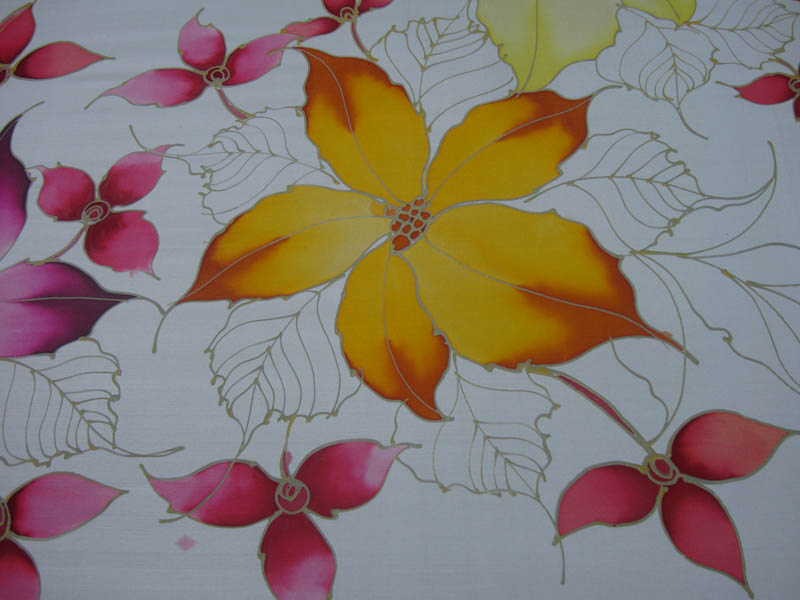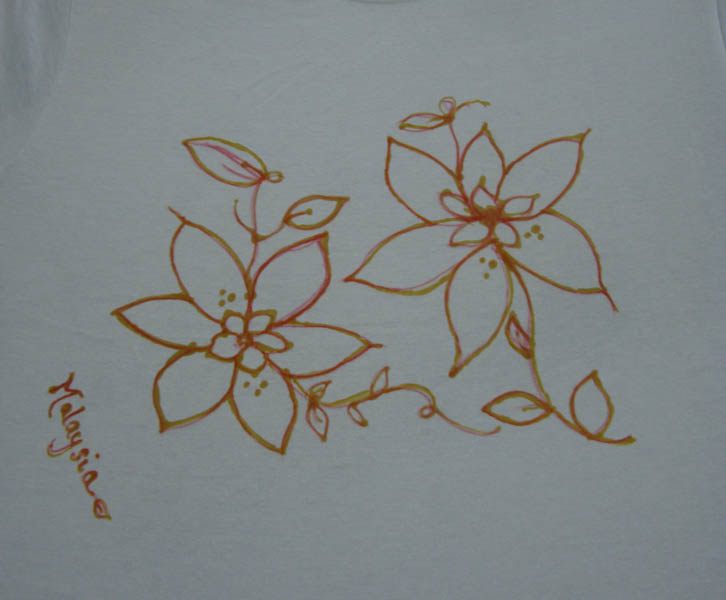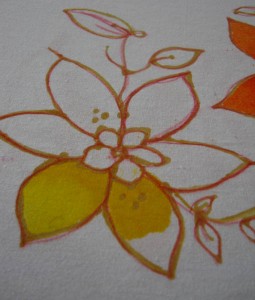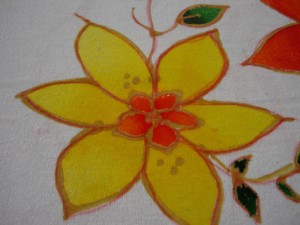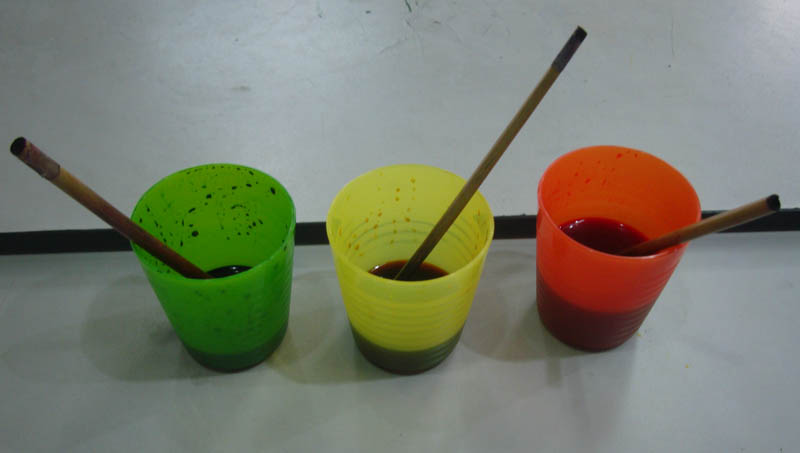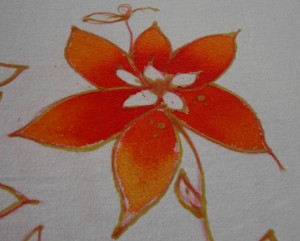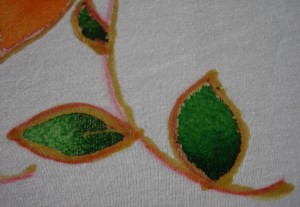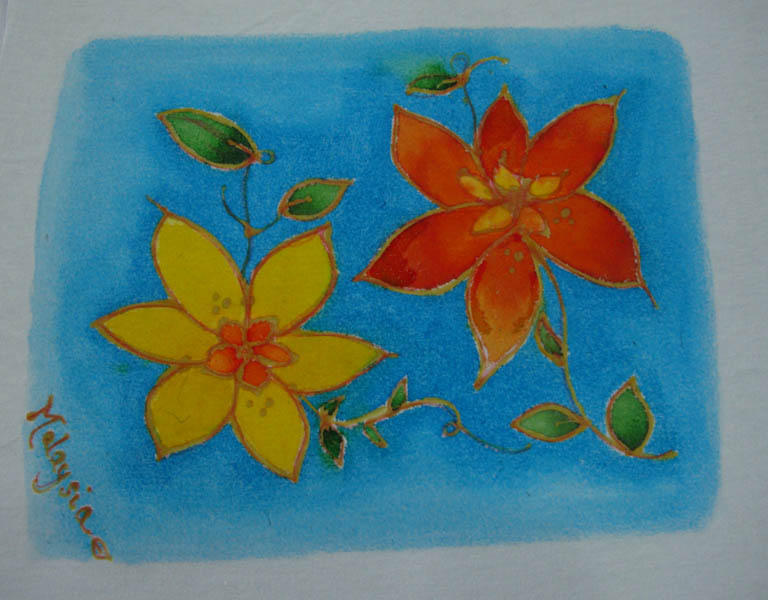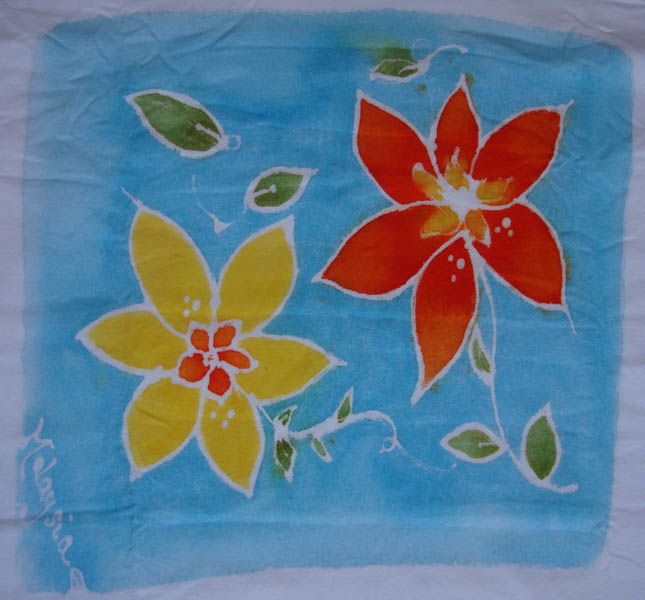While in Kuala Lumpur I decided to try my hand at batik. It is a traditional textile art found in many countries but styles differ. Malaysian batik tends to use large simple patterns and favours flower and leaf motifs. So that’s what I chose – a fitting reminder of my time in Malaysia.
Stage 1 is the drawing of the design on to my chosen fabric – a white T-shirt – using a fabric pencil. Wax is then applied to the outline on the fabric using a ‘chanting’ (a little copper pot with a spout and long handle). This provides a paint and water resistant outline for my design.
Paint is then applied with a soft brush to fill in the design.
In the workshop they have tubs of ready mixed colours lined up ready for the artists to use. Malaysian batik uses brighter more vibrant colours than Indonesian batik. Although the colours are so striking on the fabric, they are dark and rich in the pot.
A second brush dipped in water is applied in swirling strokes over the colour to achieve the graduated colour effect.
When the paint is dry the wax is heated to remove it, leaving a clear outline that creates a contrast between shapes and colours. For this design, a background colour is applied to enhance the outline of the flower shapes.
The fabric is left to dry overnight before the wax is heated and removed. Finally, the T-shirt is washed to remove the initial pencil outline.
The finished product:
I had a few little mishaps with the paint but it was great fun and I learnt a new skill. I will definitely be trying this again.
